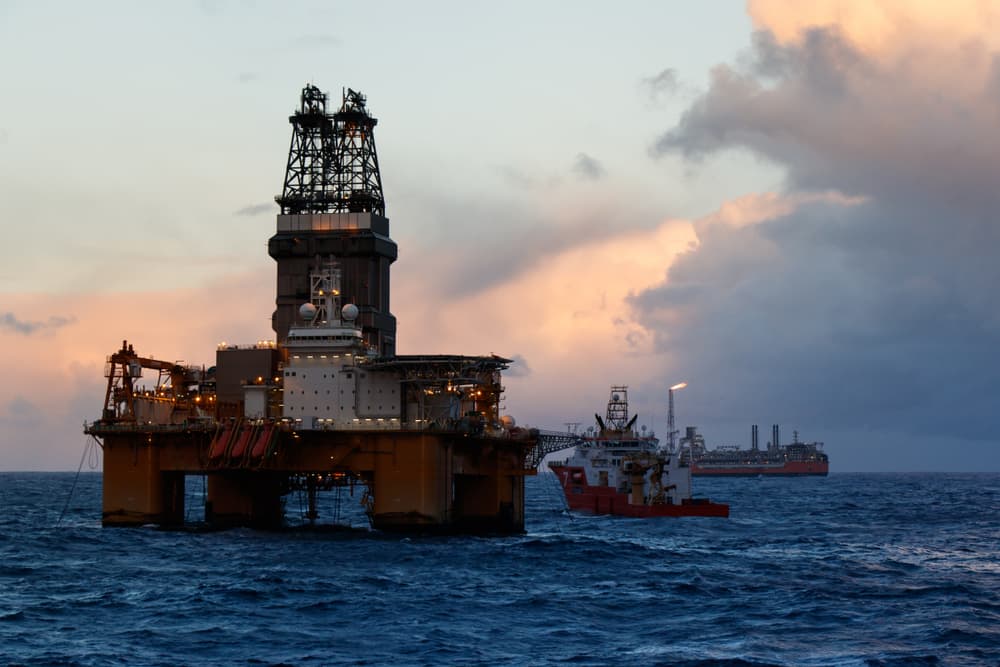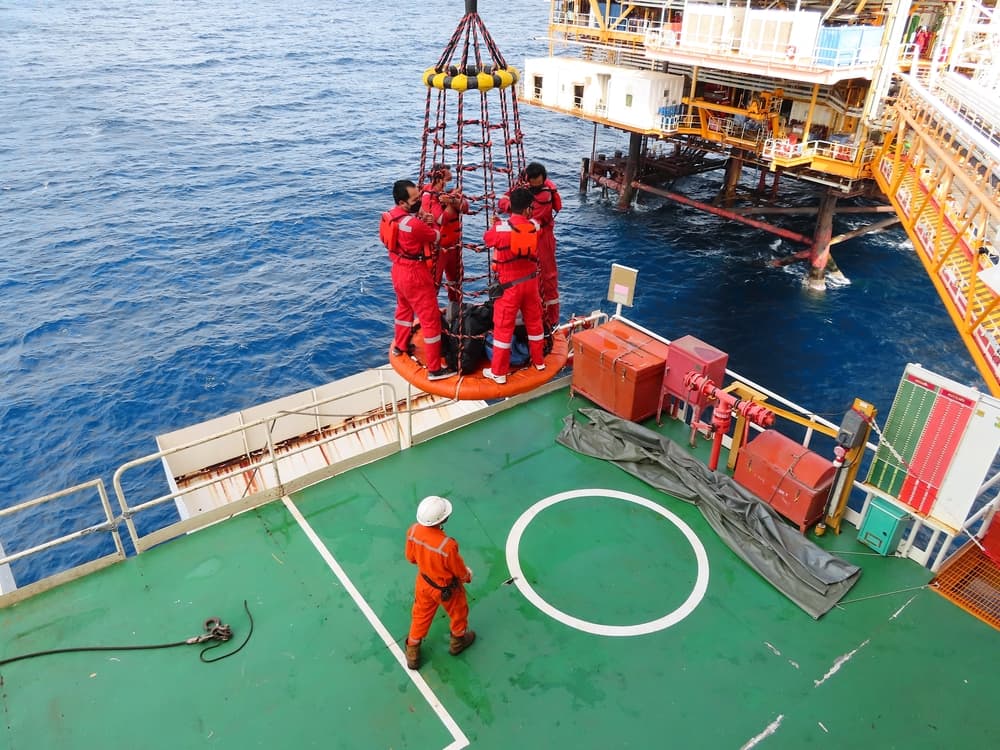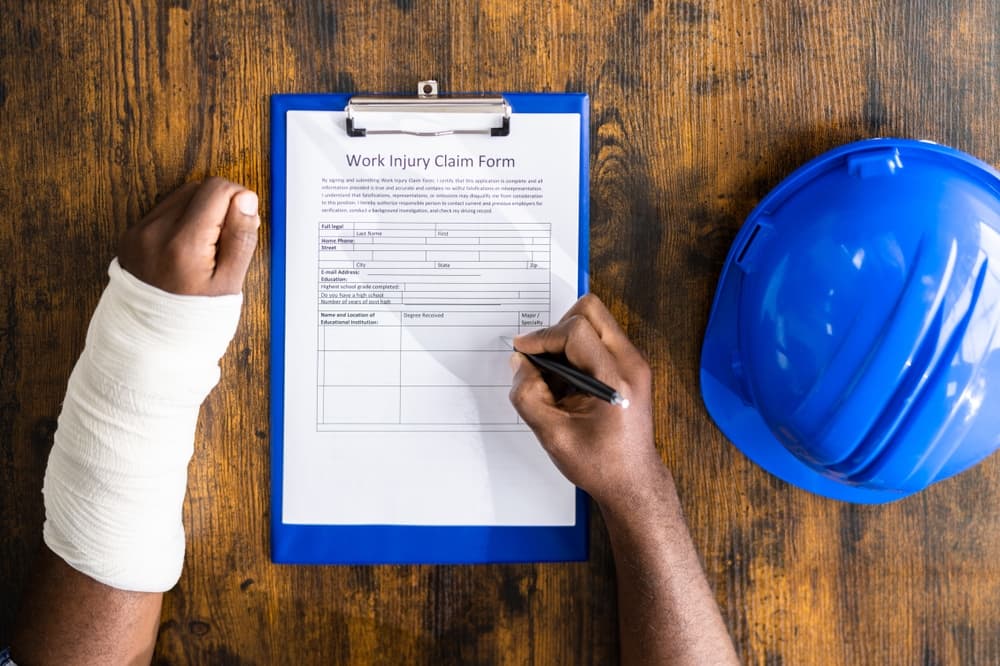Harsh weather can present severe hazards for offshore workers and may bring about various types of injuries. Whenever a worker suffers an injury while on the job – and while working within the scope of their employment – they may be eligible for various types of workers’ compensation benefits, including related medical expenses and lost income. Additionally, if offshore workers suffer injuries due to a third party’s negligence, they may be eligible for various damages via a third-party personal injury claim or lawsuit.
A knowledgeable offshore injury attorney in your area can determine your claim-filing eligibility and take the appropriate steps to maximize your compensation.
How Inclement Weather Can Affect the Safety of Offshore Workers
Inclement weather significantly affects the safety of offshore workers, posing numerous hazards that require safety measures and preparedness. Offshore environments are inherently dangerous due to their isolation, limited access to immediate medical assistance, and the complex nature of operations. When adverse weather conditions such as high winds, heavy rain, storms, and extreme temperatures are introduced, these risks increase.
- One of the primary dangers of inclement weather is rough seas, which can cause significant instability for offshore platforms and vessels. High waves and strong currents can make the platforms sway and pitch unpredictably, increasing the likelihood of slips, trips, and falls. Workers must navigate these conditions while performing physically demanding tasks – often on wet and slippery surfaces – which raises the risk of serious injuries.
- Heavy winds present another serious threat. They can dislodge equipment, create flying debris, and cause structural damage to platforms and machinery. Workers exposed to these conditions are at risk of being struck by falling objects or blown overboard. Furthermore, high winds complicate the use of cranes and other lifting equipment, increasing the potential for accidents during load-handling operations.
- Severe weather can also lead to equipment malfunctions and failures. For example, electrical systems may short-circuit in the presence of heavy rain or saltwater spray, creating fire hazards or leaving workers without crucial power for communication and safety systems. Similarly, extreme cold can cause materials to become brittle and more prone to breakage, while excessive heat can lead to heat stress or heat stroke among workers.
- Evacuation procedures are also more challenging during inclement weather. In an emergency, workers may need to be airlifted to safety. However, strong winds and poor visibility can delay or prevent helicopter rescues, leaving workers stranded and vulnerable. This makes the timely and effective response to accidents or medical emergencies more difficult, potentially increasing the severity of injuries.
To lessen these risks, offshore operations should incorporate strong safety protocols and ensure that all workers are adequately trained to handle adverse weather conditions. Regular safety drills, proper use of personal protective equipment, and constant monitoring of weather forecasts are essential. Additionally, having emergency response plans, including designated safe zones and contingency measures for equipment failure, can significantly enhance worker safety.
This does not always happen, however. If you suffered injuries in an accident, an experienced offshore injury lawyer can determine your legal options and take the necessary steps on your behalf.
Injuries that Offshore Workers May Suffer in Harsh Weather
Offshore workers face numerous challenges, particularly harsh weather conditions. These difficult environments significantly increase the risk of various injuries.
One of the most common injuries offshore workers may suffer during harsh weather is slips, trips, and falls. Heavy rain, strong winds, and rough seas can make surfaces extremely slippery. Workers moving around the platform or vessel can easily lose their footing, leading to sprains, fractures, or even more severe injuries like head trauma. The constant motion of the platform in turbulent waters also contributes to the risk of falling from heights – or into the sea.

Another major concern is injuries resulting from falling objects. High winds and storms can dislodge equipment, tools, or structural components, turning them into dangerous projectiles. Workers can be struck by these falling objects, resulting in lacerations, bruises, broken bones, or even concussions. Protective headgear and vigilant adherence to safety protocols are essential in lessening these risks.
Harsh weather conditions can also lead to machinery and equipment malfunctions. Electrical systems can short-circuit in wet conditions, or mechanical parts may fail under extreme temperatures. Workers operating faulty equipment are at high risk of electrocution, burns, or crush injuries.
Exposure-related injuries are another significant threat. In cold, wet conditions, workers can suffer from hypothermia or frostbite. Conversely, extreme heat can lead to heat exhaustion or heat stroke, which can be life-threatening if not promptly addressed.
If you suffered any of these injuries in an offshore accident, your top priority should be getting the medical treatment you need. In the meantime, your offshore injury attorney can handle the legal components of your case.
How Offshore Workers Can File a Workers’ Compensation Claim for Injuries Due to Harsh Weather
Filing a workers’ compensation claim for injuries sustained due to harsh weather is an important process for offshore workers. It ensures they receive medical care and financial support during their recovery. Here are the steps offshore workers should follow to file a successful claim.
- First, seeking immediate and ongoing medical attention after an injury is crucial. Prompt medical care addresses the injury and creates a medical record that documents the incident. This documentation is essential when filing a workers’ compensation claim, as it provides evidence of the injury and its severity.
- Next, the injured worker should report the incident to their supervisor or employer as soon as possible. Most companies have specific time frames within which injuries must be reported – often within 24 to 48 hours. Failing to report the injury promptly can complicate the claims-filing process or even result in claim denial. The report should include details about how the injury occurred, the weather conditions at the time, and any immediate symptoms experienced.
- After reporting the injury, the worker must fill out a workers’ compensation claim form. Employers and company human resource departments typically provide this form. It’s important to complete the form accurately and completely, providing all necessary information about the injury and its circumstances. If any part of the form is unclear, seeking guidance from a supervisor or human resources representative can be helpful.
- Supporting documentation is vital for a successful claim. Alongside the claim form, the injured worker should submit medical records, accident reports, and any witness statements. These documents help substantiate the claim and demonstrate the direct link between the harsh weather conditions and the injury.
- The completed claim form and supporting documentation should then be submitted to the employer or the designated workers’ compensation insurer. The insurer will review the claim, which may involve an investigation or additional requests for information. The injured worker must cooperate fully with this process, promptly providing any requested documents or answering questions.
- If the claim is approved, the worker will receive benefits to cover medical expenses, lost income, and rehabilitation costs. If the claim is denied, the worker can appeal the decision. This often involves a more formal review process, and anyone facing a possible appeal should immediately seek legal advice from an attorney who regularly handles workers’ compensation cases.
An attorney can handle the claim process for you, giving you a better chance at receiving full benefits with fewer obstacles.
Types of Available Workers’ Compensation Benefits for Injured Offshore Workers
Workers’ compensation benefits are crucial for offshore workers who suffer injuries while performing their duties – especially under harsh weather conditions. These benefits provide financial support and medical care, helping injured workers recover and return to work. Here are the main types of workers’ compensation benefits available to injured offshore workers.

- Medical Benefits – These benefits cover the cost of medical treatment related to the injury. This includes hospital stays, doctor visits, surgeries, medications, physical therapy, and any necessary medical equipment like crutches or wheelchairs. Offshore workers are entitled to all reasonable and necessary medical care to recover from their work-related injuries without paying out-of-pocket.
- Temporary Disability Benefits – When an injury prevents a worker from performing their job temporarily, they may qualify for temporary disability benefits. These benefits provide a portion of the worker’s income while they cannot work. Temporary total disability (TTD) benefits apply when the worker cannot work at all during the recovery period, while temporary partial disability (TPD) benefits are available if the worker can perform some, but not all, of their job duties.
- Permanent Disability Benefits – If an injury results in a permanent impairment that affects the worker’s ability to perform their job, they may be eligible for permanent disability benefits. Permanent partial disability (PPD) benefits are granted when the worker can still work but has a lasting disability. Permanent total disability (PTD) benefits apply if the worker is completely unable to return to work due to their injury. These benefits compensate for the long-term loss of earning capacity.
- Vocational Rehabilitation – In cases where an injured worker cannot return to their previous job due to their injury, vocational rehabilitation benefits may be available. These benefits cover the costs of retraining, education, and job placement services to help the worker find new employment. This support aims to facilitate the worker’s return to the workforce in a different capacity if they can no longer perform their original job.
- Death Benefits – If an offshore worker dies due to a work-related injury, their dependents may be eligible for various death benefits. These benefits provide financial support to the deceased worker’s family, including coverage for funeral expenses and ongoing financial assistance to the worker’s spouse and children.
These workers’ compensation benefits should ensure injured offshore workers receive the medical care they need and financial support to cover lost income and other expenses. However, the process is not always a smooth one, and legal assistance is highly valuable.
How Offshore Workers Can File a Third-party Claim for Injuries Due to Harsh Weather Conditions
Offshore workers who suffer injuries due to harsh weather conditions can file a third-party claim if another party, aside from their employer, is responsible for their injuries. This may include equipment manufacturers, subcontractors, or other entities involved in offshore operations. Filing a third-party claim can help injured workers recover additional compensation beyond what workers’ compensation provides. Here’s how offshore workers can file a third-party claim and the types of compensation they may recover.
Steps to File a Third-Party Claim:

- Identify the Responsible Party – Determine who may be liable for the injury. This can be a manufacturer of faulty equipment, a subcontractor whose negligence contributed to the accident, or another party involved in the offshore operation.
- Gather Necessary Evidence – Collect evidence to support the claim. This includes medical records, accident reports, witness statements, photographs of the accident scene, and any documentation showing the involvement and negligence of the third party.
- Consult an Offshore Injury Attorney – Engaging an offshore injury lawyer who regularly handles maritime law and personal injury cases is crucial. An attorney can provide legal advice, gather necessary evidence, and navigate the third-party claim for you.
- File the Claim – An attorney will prepare and file the claim against the responsible third party. This involves drafting legal documents, detailing the incident, and explaining how the third party’s actions or negligence led to the injury.
- Negotiate or Litigate – The third-party claim can be resolved through negotiation or, if necessary, litigation. The attorney will negotiate with the third party or their insurance company for a fair settlement. If a settlement cannot be reached, the case may go to court for a judge or jury to decide the outcome.
Types of Recoverable Compensation:
- Medical Expenses – Compensation can cover all medical costs related to the injury, including hospital stays, procedures, rehabilitation, medication, and ongoing medical care.
- Lost Earnings—If the injury results in a long–term disability, Injured workers can recover compensation for lost income due to their inability to work during recovery, including past and future income.
- Pain and Suffering – This compensation addresses the physical pain and emotional distress resulting from the injury. It also accounts for the effect on the worker’s quality of life and mental health.
By following these steps and understanding the types of compensation available, offshore workers can effectively pursue a third-party claim, ensuring they receive the necessary financial support and justice for their injuries.
Contact an Experienced Offshore Injury Attorney as Soon as Possible
If you suffered an injury while working at your offshore job, you may be eligible to recover various workers’ compensation benefits or third-party damages. A knowledgeable personal injury lawyer can determine your eligibility and take the steps necessary to pursue the financial recovery you deserve.
